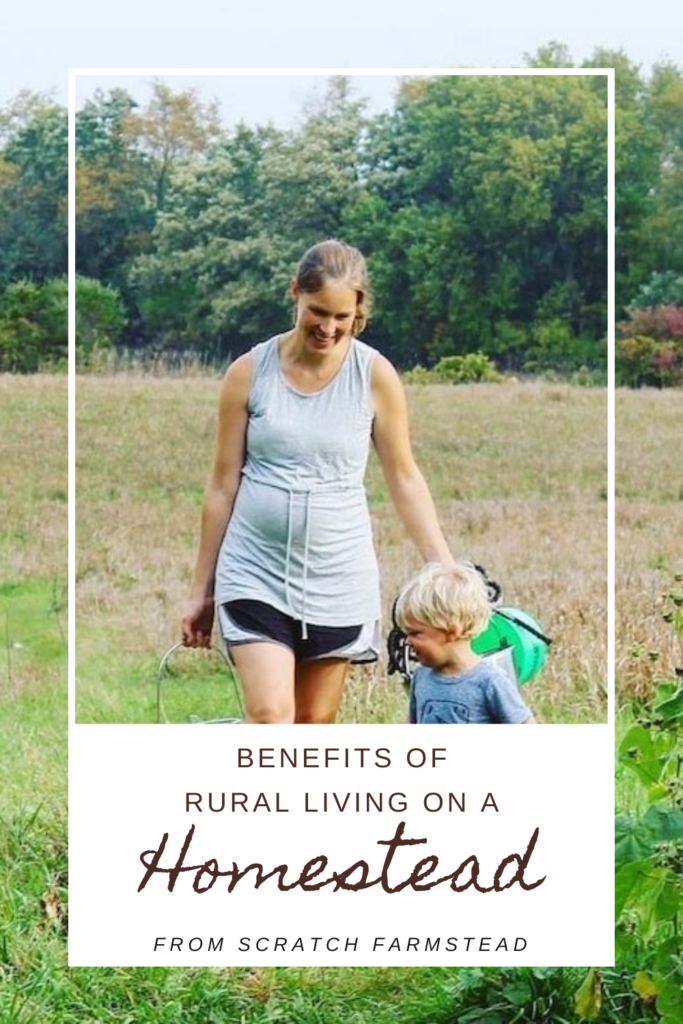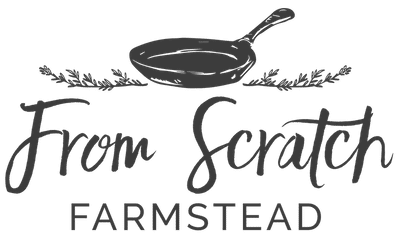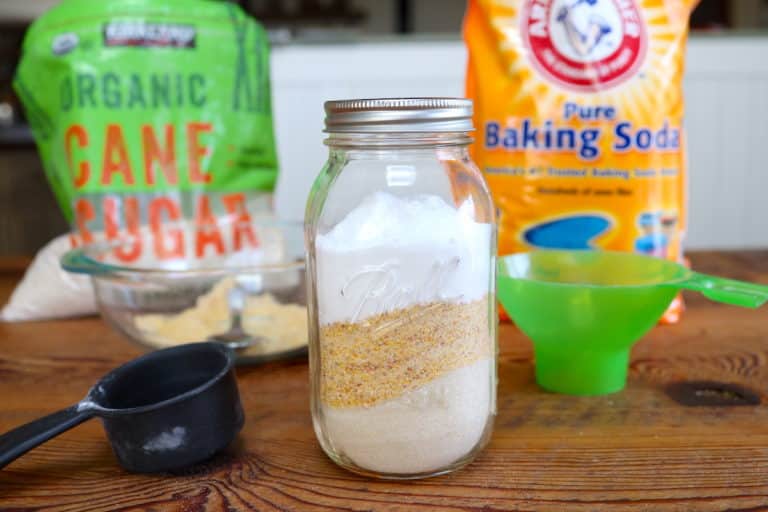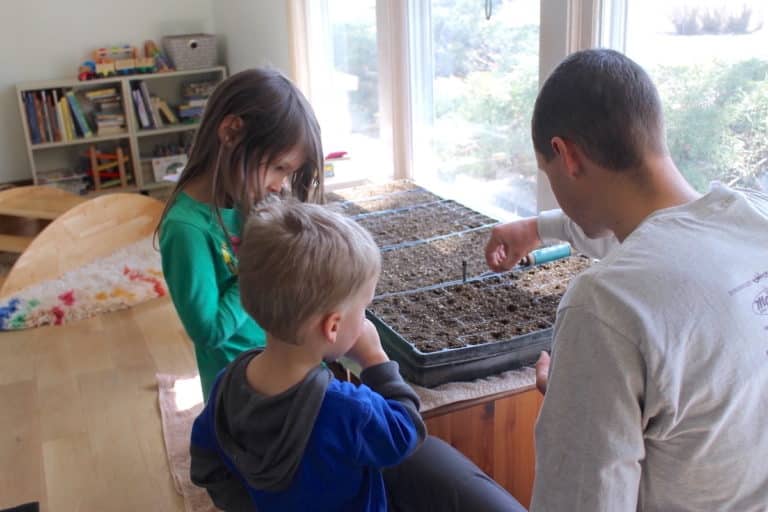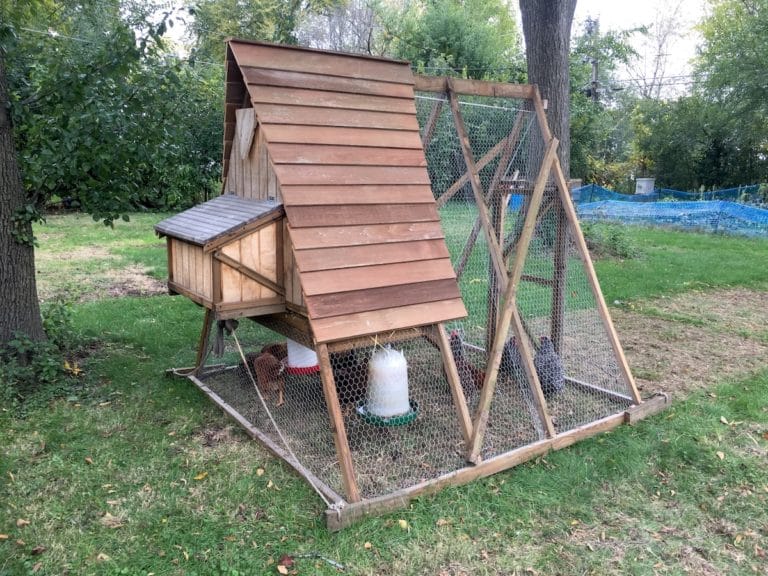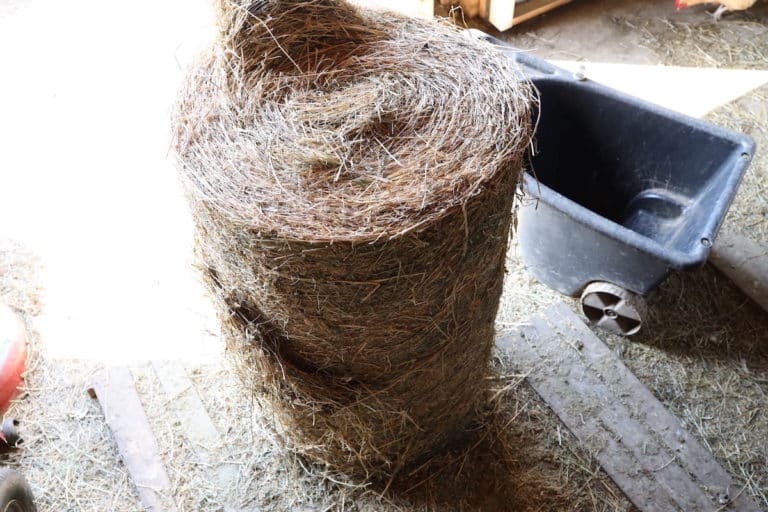Benefits of Rural Living on a Homestead
Moving from an urban or suburban area to a rural area can be a big leap. Our family has gone from the suburbs, to a very rural area, to now a hybrid area that is rural on the outskirts of suburbia. Here are the benefits of rural living we see and what to consider before moving to the country.
Our Move Out Of The Suburbs
Our middle son will be turning four years old this summer. In his little life he will have lived in five different locations, three of which were for over a year. Needless to say, we have moved a lot.
The three main places we have lived the last few years represent very different swaths of the American landscape. Here’s a snapshot of where we have lived:
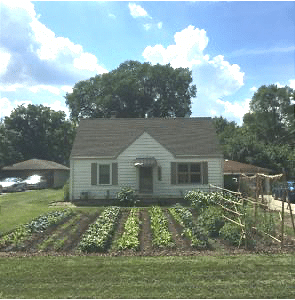
Suburbs – We started in the suburbs and had a typical suburban home on a 1/3-acre lot. However, we were never convinced this was the right fit. We had gardens, chickens, bees, fruit
trees, and most of what we did stood out – especially when we tilled up our whole front yard and planted a garden!
Very Rural – In 2019 we took a big plunge and moved to small-town, rural America. We were about four hours away from our suburban home in a town of 411 people. We actually lived in town at this location, but worked nearby on a farm.
Rural/Suburban – Where we live now is very much rural, but it is close enough to the suburbs to feel like everything is within a day trip. We have 5 acres and are surrounded by other farms with suburban amenities not far off.
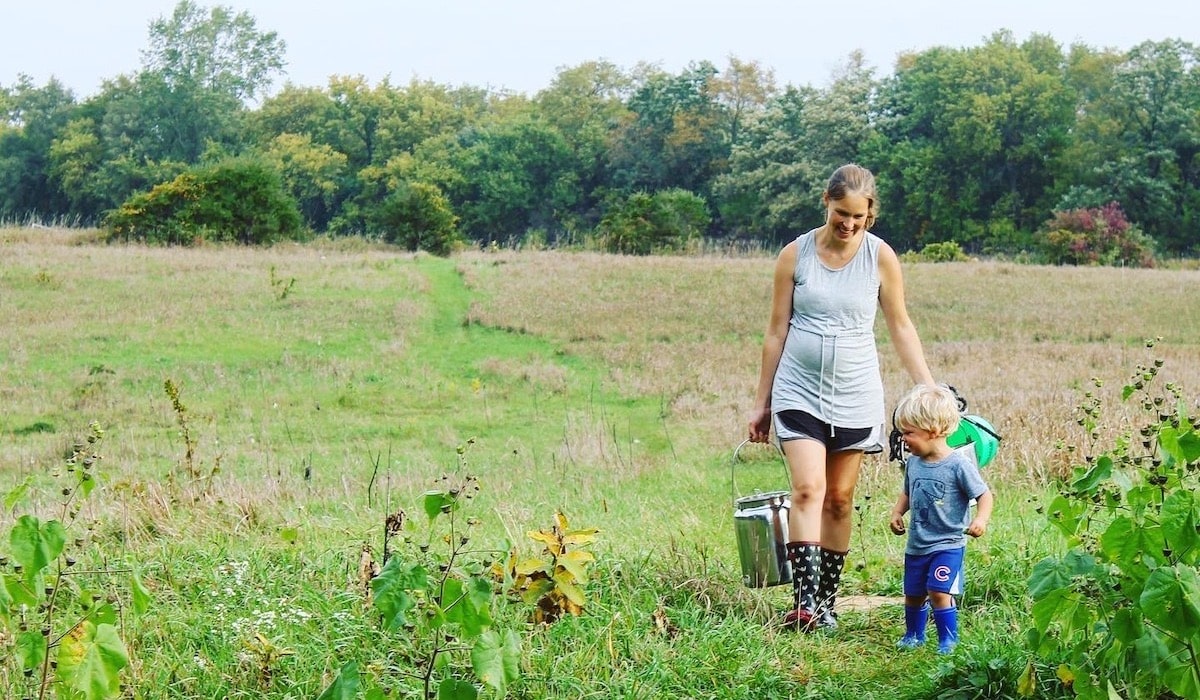
Benefits of Rural Living on a Homestead
Self Sufficient Living
Having some acreage in a rural area will allow you to live a self sufficient lifestyle. In our experience, we were able to feed our family year round almost entirely off our land in our first year of homesteading.
On just 5 acres, we are able to have a family milk cow along with chickens, pigs, gardens, an orchard, and room to expand in the future.
Even in urban areas, you can do a lot to be self sufficient. But comparatively, we are able to provide nearly 100% of the meat, dairy, and produce our growing family needs on our rural homestead.

Raising A Family
Homesteading is hard yet meaningful work. So much of our days revolve around growing food and preparing it in the kitchen. Raising kids in this environment has so many benefits and really helps them connect the dots of where their food comes from.
From feeding and caring for animals every day to seeing them be processed, everyone is exposed to the full cycles of life and death on the farm. This gives them a deep respect for the food on their plate and not wanting to see it wasted. Children also learn a strong work ethic helping with daily chores and other projects around the homestead.
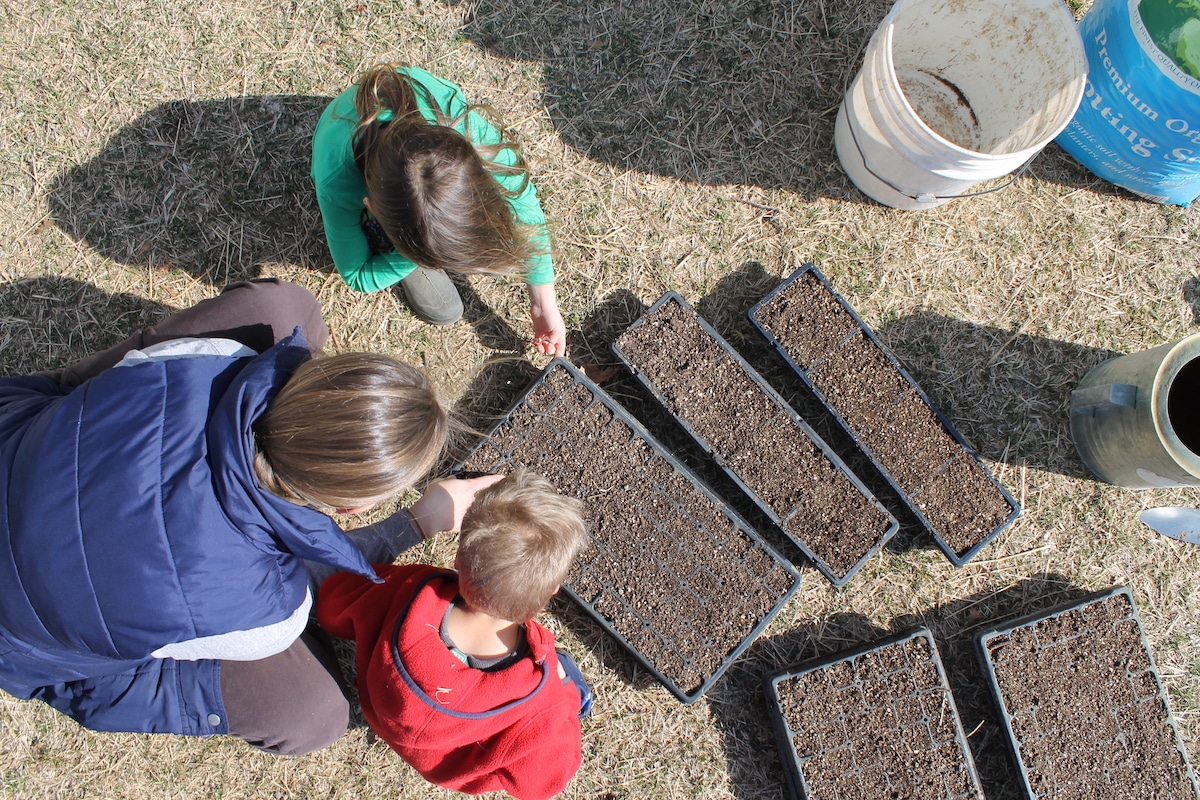
Community
When we lived in the suburbs, we had lots of friends and people in our lives. But few relationships revolved around the shared values we had of homesteading, growing our own food, homeschooling, supporting other local growers, being in nature, etc.
When we moved to a more rural area we didn’t know anyone, but have since met many other like-minded families. Many of them have made a similar decision to leave the suburbs for a life of more purpose and self sufficiency.
Community is usually also strong in small town America in that there is a lot of local pride and support. We have seen many examples of the community rallying around each other and lending a helping hand.
Freedom to Farm
If you’ve tried farming in the suburbs, like we did, you realize it has its limitations. Some places will allow chickens. Some won’t. Composting will be welcomed in some areas. Some will have rules against it. It was a wake up call for us when we accidentally ended up with a rooster in our backyard flock and got a stern warning form the County that he needed to go.
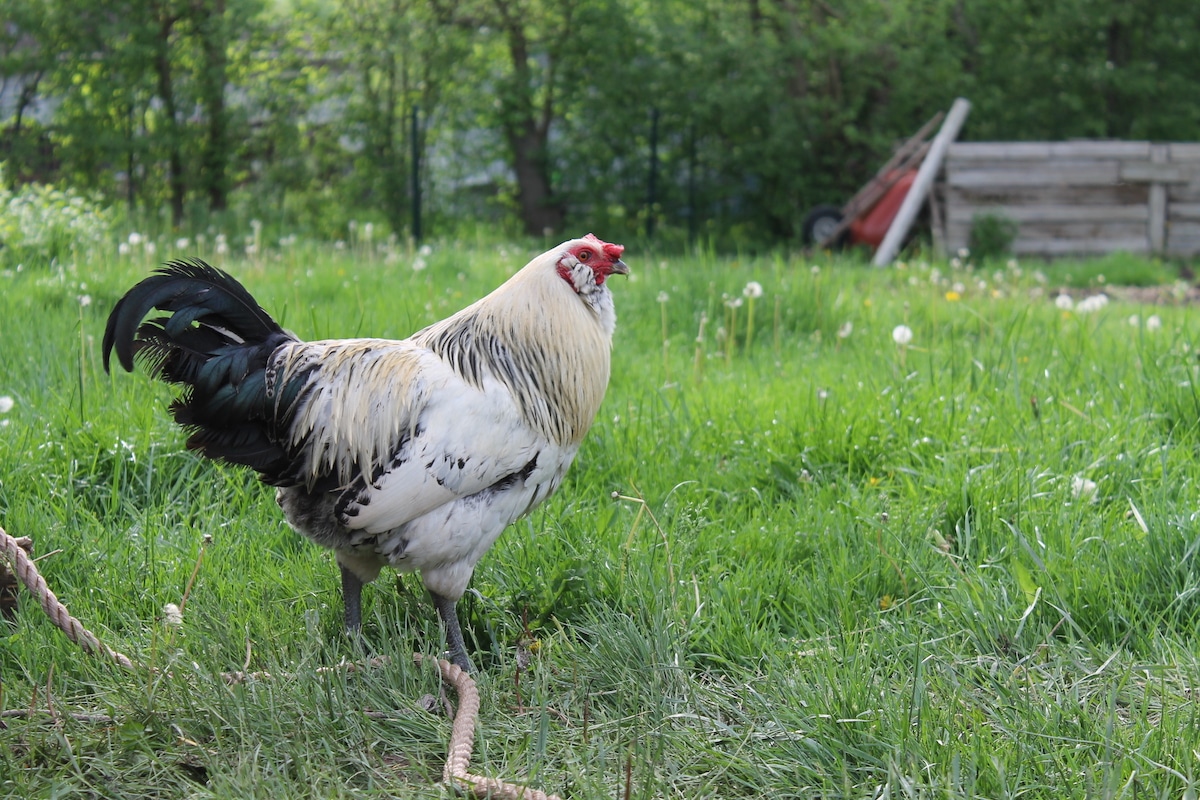
When the place you live is built around agricultural pursuits, you don’t run into these limitations. Just about everyone has animals in some form or another in the rural area where we live. It would be strange to not hear a rooster crowing at 5:00 a.m.
Home Based Lifestyle
Because things are more spread out in the country, the norm is to stay home. We’ve grown to appreciate the simplicity of this home-based lifestyle. This often means more opportunity for quality time together as a family and less opportunity for the expenses that pop up when you are out and about.
We also homeschool, and a rural setting has made the perfect classroom for learning valuable skills and experiencing nature firsthand.
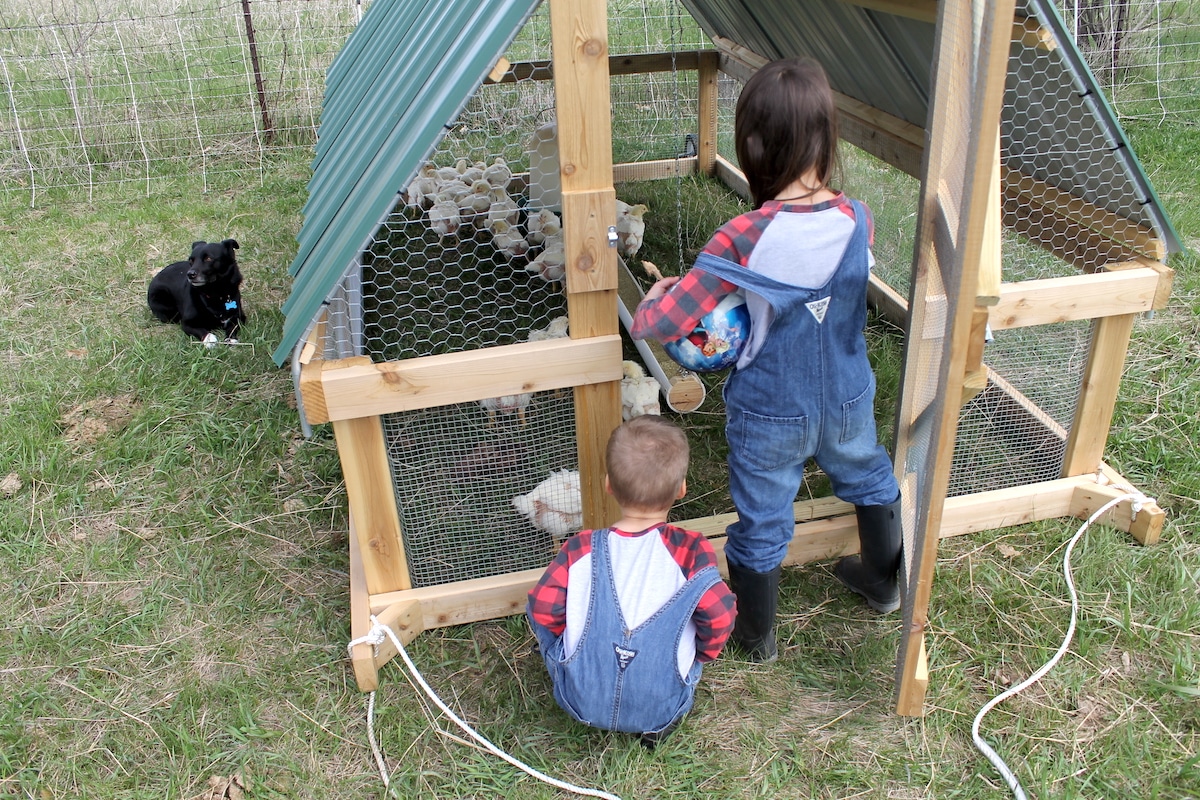
Wide Open Spaces
Hands down, rural landscapes are beautiful. Rolling hills, forests, farmland, pastures. There is something peaceful and calming about surrounding yourself with these sorts of sights and scenes in your everyday.
Even on our own property, we are able to enjoy going on walks or hikes and enjoy the openness and wildlife around us.

Home & Land Cost
The more rural you go, the more home and land you can afford. We were able to purchase a slightly larger home on 5 acres than what we sold our small suburban home for.
However, going out and buying the biggest house and land you can afford in a rural area may not always be the best fit. You can read our homestead purchase story and how we bought at the lower end of what we could afford and were very happy with the flexibility this afforded our family.
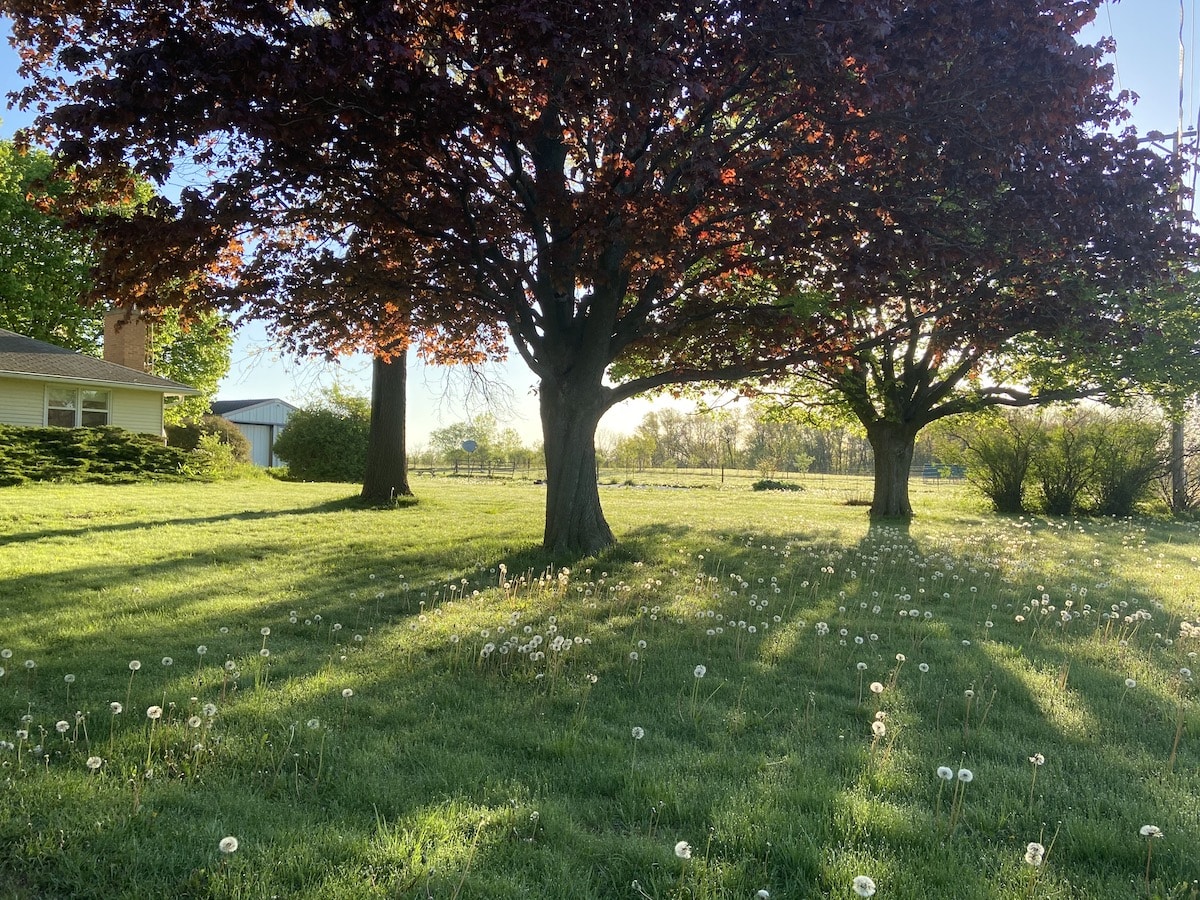
What to Consider Before Moving Out of a Suburban or Urban Area
Proximity
When we lived in the suburbs just about anything we needed or wanted to do was within a 10-minute drive.
When we lived in a very rural area, the nearest shopping or grocery store was 45-60 minutes away. Where we are now, we can get to town for the basics in 10-15 minutes, but to get to the stores or activities we prefer, it’s usually about a 30 minute drive.
You’ll want to consider this reality before going rural. For us, this means planning our trips strategically so we can try to accomplish all of our errands in a single weekly trip. When we lived close to an hour away from everything, we tried to make those trips only once or twice a month.
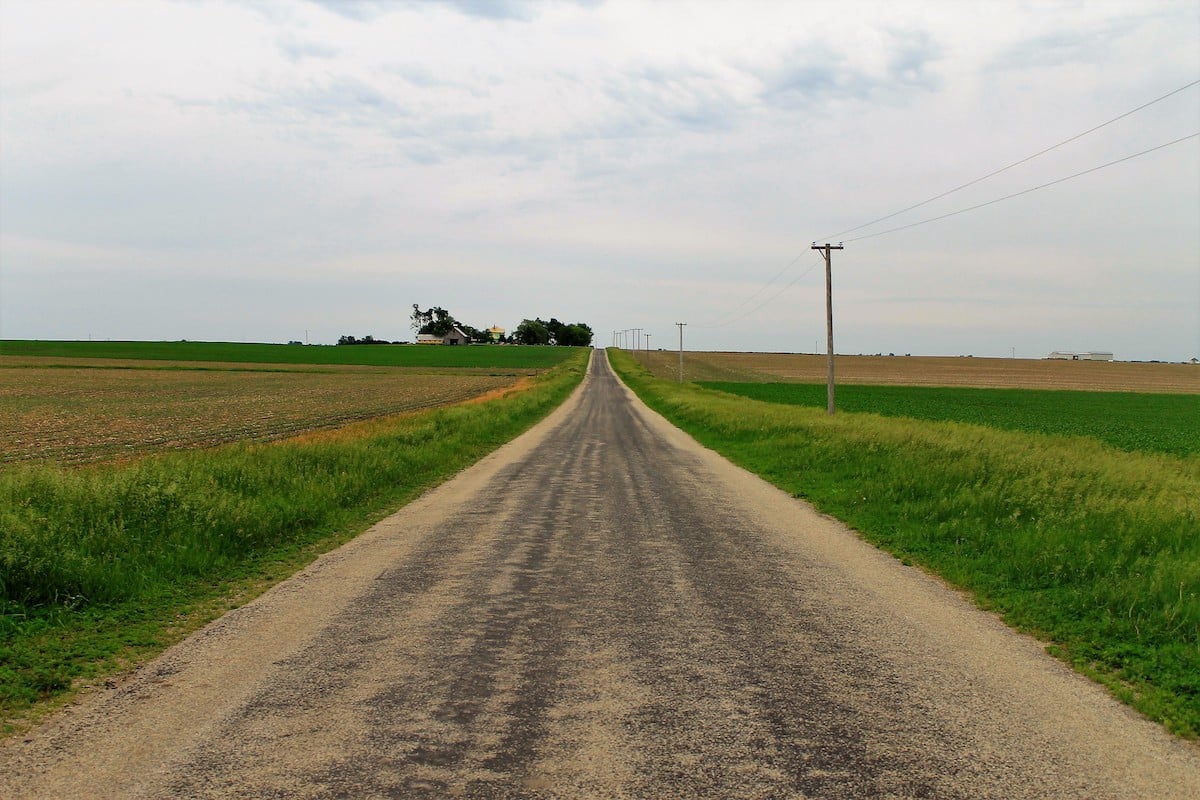
Opportunities
The opportunities and activities available to you are going to look different in a rural area versus somewhere more populated. Churches, schools, fitness, shopping, libraries, events, entertainment are likely going to have fewer options to choose from.
This has taken some adjustment of expectations on our end. We don’t have the denomination of church we’d like to attend within a drivable distance. And when we want to sign our kids up for swim lessons, there is one OK option versus 10 great ones.
This is definitely an area you’ll want to think long and hard on if your life really revolves around the activities and shopping available to you now and you’re not sure how you would handle being without them.
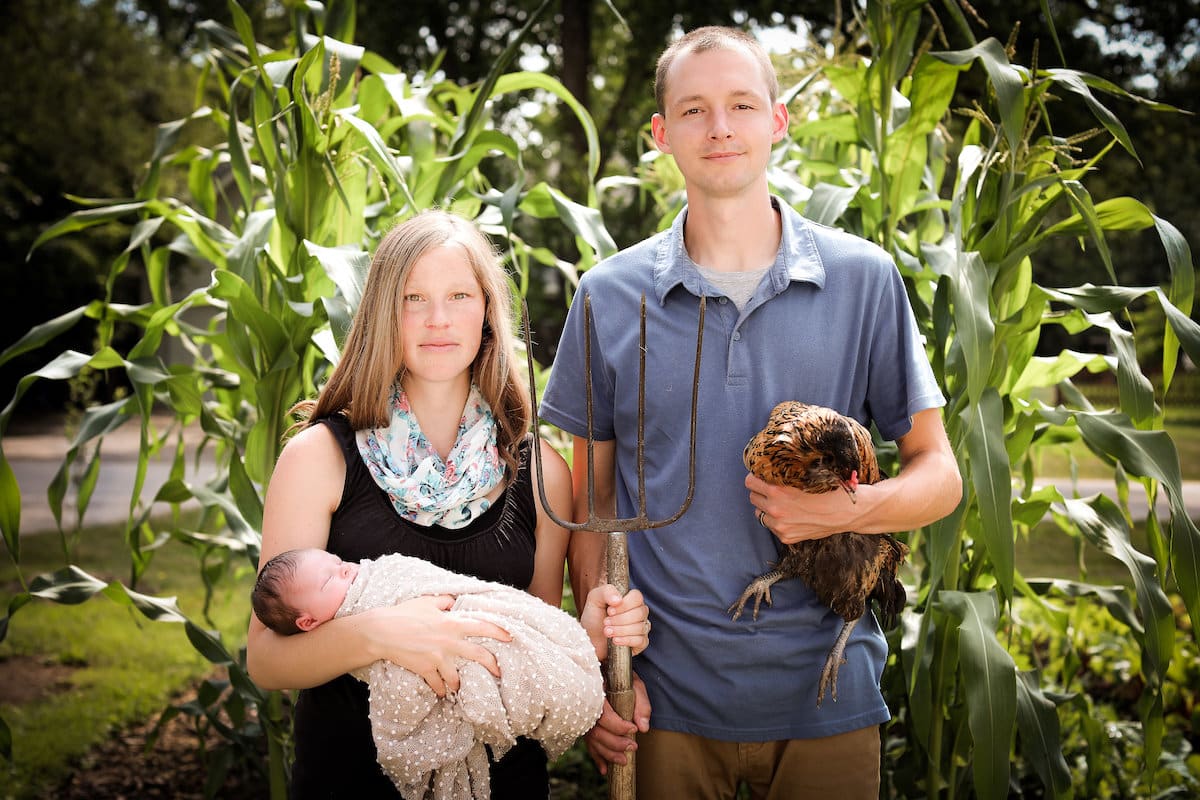
Time
Here’s a shocker! Time doesn’t magically slow down when you move to the country and have a homestead.
There’s the “grass is always greener” thinking that says living in the county is going to be this glorious slow paced lifestyle where you watch all the beautiful scenes of nature around you while sipping sweet tea on your back patio.
Homesteading is hard work! And life in many ways feels just a full living rurally as it did living in the suburbs. Time just looks different. In the suburbs life was more on-the-go, moving from one activity or meet-up to the next. On our homestead, our time goes toward the never ending list of seasonal to-do’s to keep everything moving.
Planting, weeding, watering, feeding, fence repair, projects, septic issues. There is plenty to keep your plate full and if those things don’t float your boat, you’ll want to really consider if a rural lifestyle is right for you.
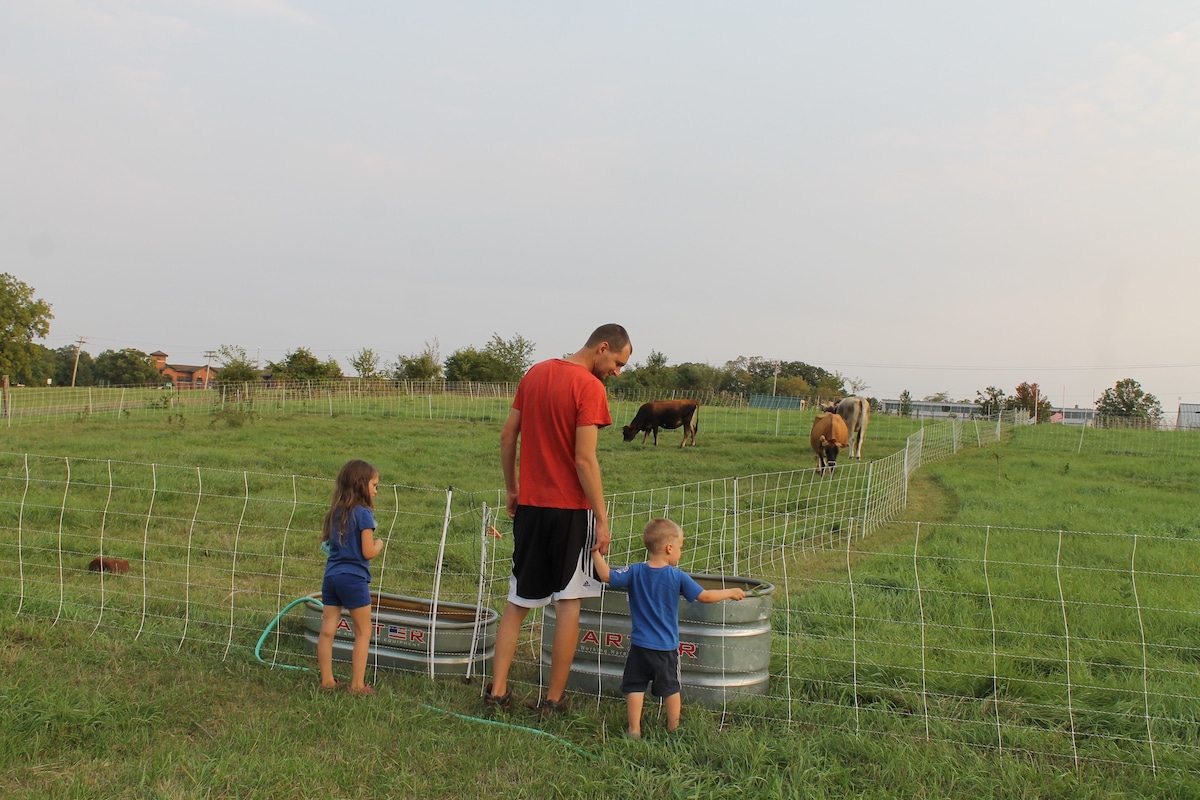
Neighbors
We had this notion when living in the suburbs that moving to a rural area meant living in isolation.
That certainly can be true and there are plenty of rural areas where you may not see another person all day. But where we live, which is representative of many rural areas, you have plenty of neighbors and interaction with people.
Yes, it won’t look like living in an urban area, but we regularly interact with people, visit with neighbors, or have people stopping by our home.
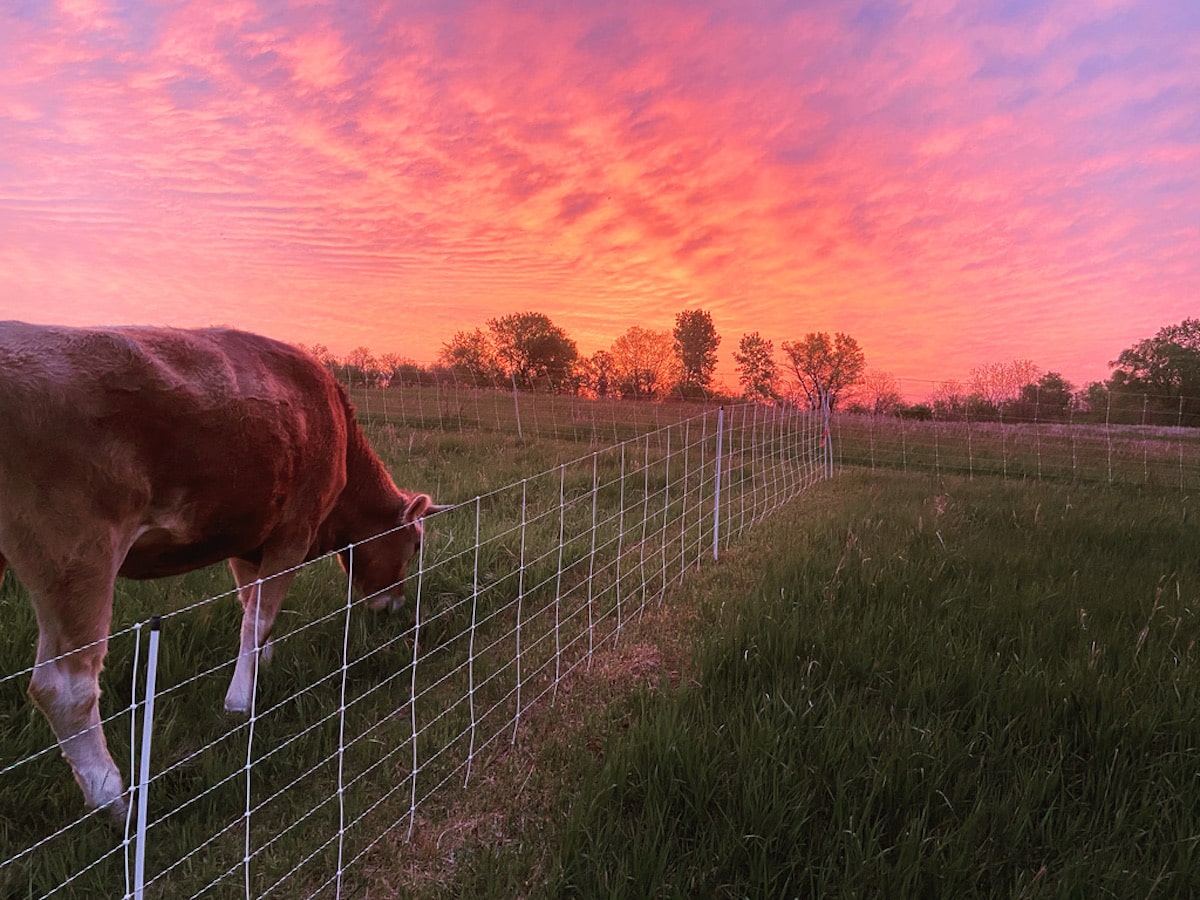
What Option is Right for You?
The decision to live in a more populated area versus a more rural area can be challenging to navigate. We hope some of these categories and the experiences we have had are helpful in processing what the right fit is for you and your family.
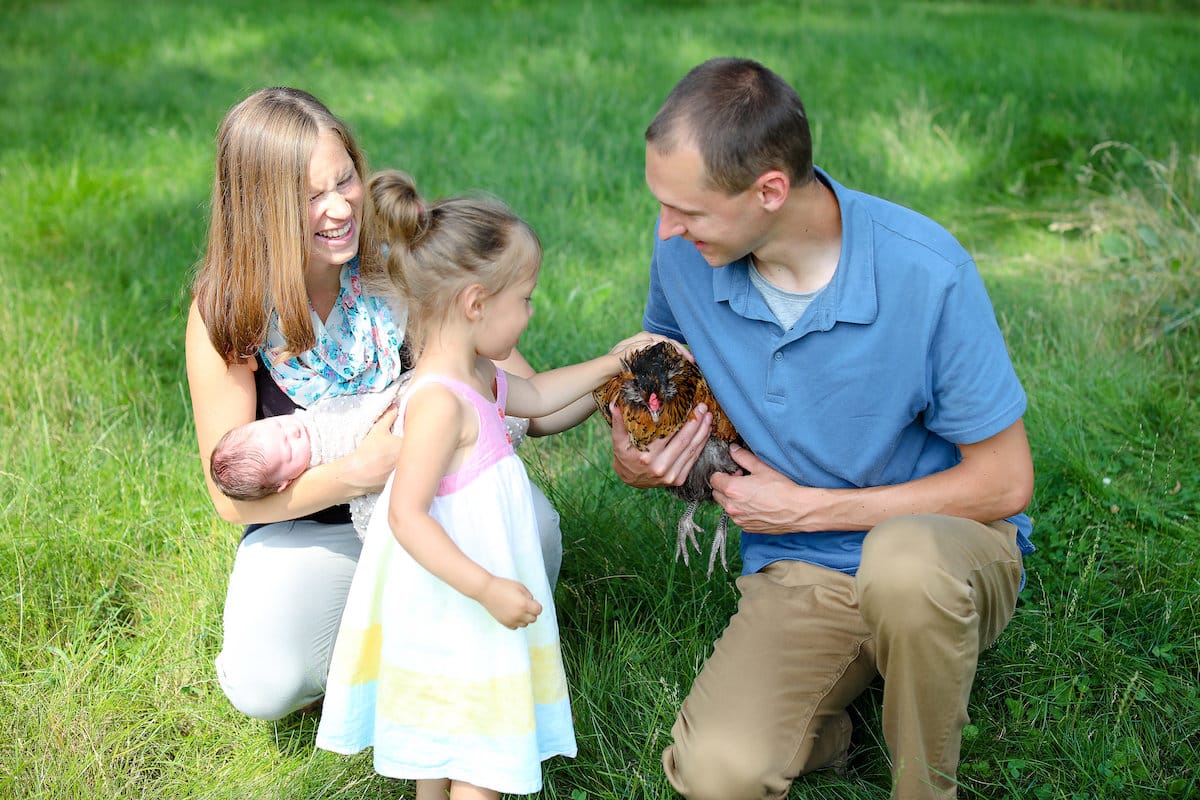
And some of it does come down to perspective. We were born and raised in the suburbs, so the area we currently lived seemed WAY out in the sticks when we were first considering a move. But after we lived far out in the country in a small town of 411 people, our current home seems like just the right middle ground with close proximity to shopping, family, friends, and anything else we would want to do.
It takes time to make these decisions. Don’t feel rushed. Explore areas, get crystal clear on your values, priorities, and plans, and ask yourself what sort of environment allows you to best live those things out.
What other benefits do you see to rural living?
Read more about living on a homestead:
- Buying a Homestead on a Budget
- Setting Up A Homestead Budget For One Small Income
- Beginners Guide to Self Sufficient Homesteading
- Why a 5 Acre Homestead is the Perfect Size for a Beginner
- Homestead Garden Plan – Year Round Food On 1/4 Acre
Pin it for later!
